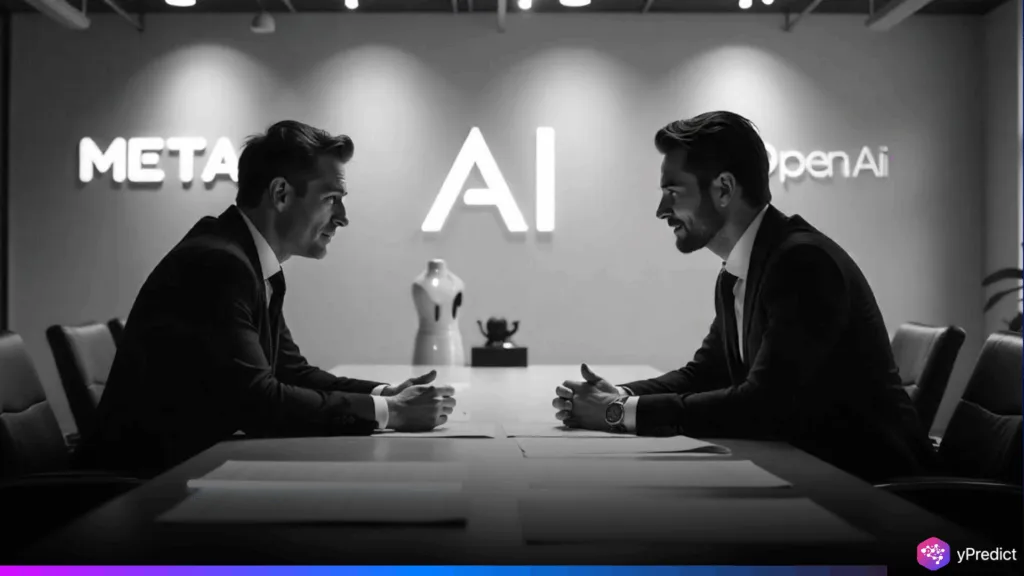
Meta’s CTO, Andrew Bosworth, confirmed that OpenAI is countering Meta’s massive signing bonuses, some reportedly as high as $100 million, to retain top AI talent. This revelation follows Sam Altman’s public remarks criticizing Meta’s aggressive poaching tactics. While Altman downplayed defections, Bosworth highlighted that OpenAI quietly matches these offers to hold onto critical staff. The back-and-forth underscores the high-stakes battle for AI expertise amid surging demand. With Meta’s $14.8 billion investment in Scale AI and an arms race to build superintelligence, elite AI engineers are commanding unprecedented compensation, reflecting the technology’s central role in shaping the future of major tech companies.
Unprecedented Valuations for Elite AI Engineers
According to Meta CTO Andrew Bosworth, the market for AI talent has reached levels he’s “never seen in a 20-year tech career.” Star engineers, those who committed to machine learning five to ten years ago, are now in a small elite cohort commanding jaw-dropping salaries and signing bonuses. Sam Altman previously stated that Meta attempted to lure OpenAI staff with $100 million offers. But Bosworth says OpenAI is quietly matching those bids to keep its best people. This silent salary war is reshaping industry norms.
The scramble for elite AI minds reflects the existential stakes for companies racing to dominate the generative AI frontier. Meta’s $14.8 billion investment in Scale AI isn’t just about technology. It’s also about acquiring strategic human capital, particularly Scale CEO Alexandr Wang. Tech giants now treat senior AI engineers like franchise players. Offering compensation packages rivaling those of top athletes or hedge fund managers.
Bosworth predicted this elite-tier compensation won’t last forever. As more technologists enter the field and generative AI education scales, supply may meet demand, reducing future costs. But today, scarcity drives value, and companies like Meta and OpenAI are sparing no expense to stay ahead.
Big Tech’s AI Arms Race Intensifies
Meta’s hiring war with OpenAI reveals deeper tensions driving Big Tech’s AI strategies. With OpenAI setting the pace in large language models and consumer-grade tools like ChatGPT, rivals like Meta are pushing back, not just with model development but also with talent acquisition. Their $14.8 billion deal with Scale AI was widely viewed as a strategic acquihire, with Scale CEO Alexandr Wang set to play a major role in Meta’s new superintelligence division. Meanwhile, OpenAI is trying to solidify its lead by retaining core talent at all costs. These engineers are not just building models.
They are setting architectures, shaping safety protocols, and defining the boundaries of artificial general intelligence (AGI). Their institutional knowledge is irreplaceable. Bosworth’s comments on CNBC also suggest that this battle for talent is less about poaching and more about price discovery. The AI boom has created a market correction for a rare skill set that was underpriced five years ago. Now, compensation packages for AI engineers reflect their strategic value. This isn’t just a hiring war. It’s a sign that Big Tech sees AGI not as a distant goal but as a near-term competitive differentiator, one worth billions, and maybe even monopolistic control, depending on who wins.
AI Pay Wars Signal Industry’s Strategic Shift
The $100 million signing bonuses and counteroffers signal a seismic shift in how tech giants value AI expertise. Meta and OpenAI’s rivalry over talent shows that AI is no longer just R&D. It’s core business infrastructure. As companies prepare for the AGI era, top engineers have become strategic assets, not just employees. Bosworth predicts salaries may normalize as more experts enter the field, but for now, a scarcity of elite AI talent fuels soaring costs. This moment highlights the industry’s transition: AI isn’t a side project, it’s the centerpiece of Big Tech’s next chapter, and it’s rewriting compensation, competition, and control.





